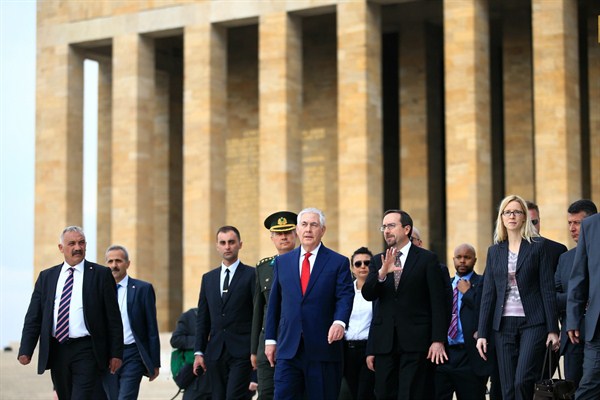Donald Trump is being drawn into the hot conflicts of the Middle East in ways that will define his presidency. Like the idealistic Barack Obama before he became president in 2009, Trump campaigned on promises that he would not allow the United States to get stuck in the region. Unlike Obama, Trump is confident that more military might will provide quick results, while showing little sign of preparing for postwar challenges or real disagreements with regional partners.
Reality is catching up with the new administration. The Middle East has long proven its power to lure American leaders, often reluctantly, into its battles. Trump has a simple formula: The presence and use of American military power will deter adversaries enough to allow the U.S. to move on and focus on his compelling domestic agenda. Previous presidents have also hoped that America’s high-risk engagements, from Vietnam to Iraq, would stabilize enough to permit a politically acceptable exit. But Trump is now learning that it’s hard to control the timing or the costs of such transitions.
Despite his campaign talk of getting out of futile military operations, Trump has already increased American involvement in Yemen, where Saudi Arabia is leading a war against Houthi rebels, and has added more American troops in the campaigns against the self-proclaimed Islamic State in Iraq and Syria. This past week, after a spike in civilian casualties during U.S. bombing raids in Mosul and Syria, officials did not really clarify whether the rules of engagement have changed. The commander of CENTCOM, Gen. Joseph Votel, spoke of eliminating delays in approving attacks by delegating more authority to field commanders, but said the strict protocols for preventing civilian casualties remain in place. It’s not hard to imagine cases where those two assertions cannot both be true.

